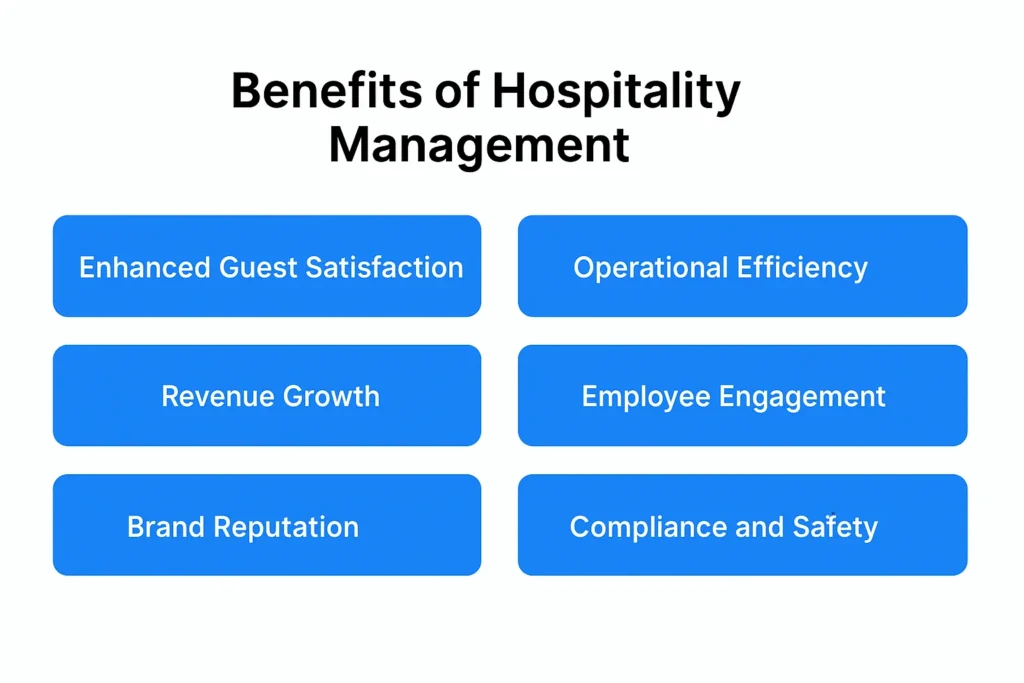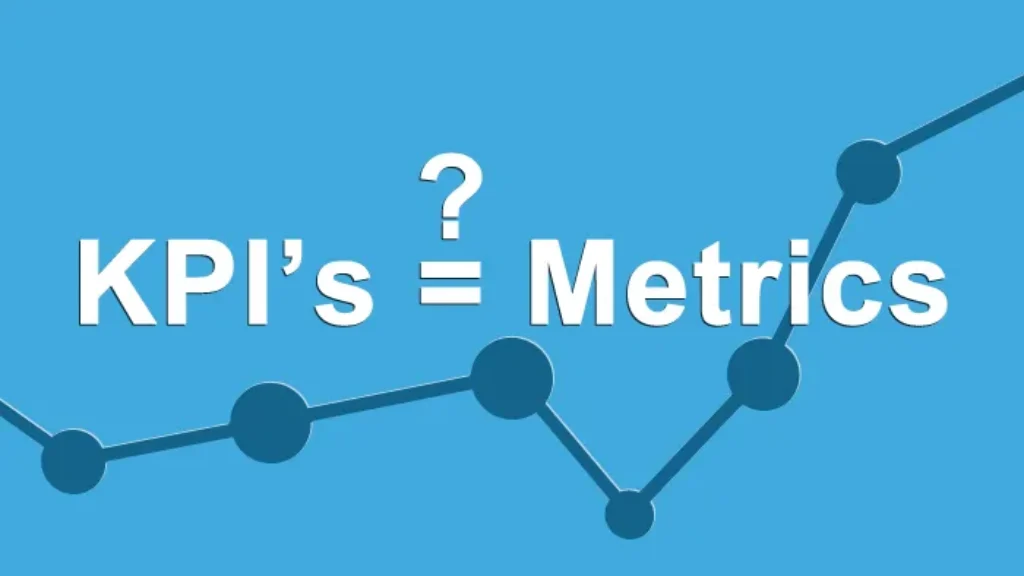
Executive Summary
Hospitality management is the art and science of managing businesses in the hospitality industry, including hotels, resorts, restaurants, travel services, and event planning. It focuses on providing exceptional customer experiences, operational efficiency, and profitability while maintaining service quality and brand reputation.
Effective hospitality management combines operational expertise, leadership, financial oversight, human resource management, and customer service skills to ensure that guests enjoy a seamless and memorable experience. This guide explores the principles, processes, benefits, challenges, strategies, and technologies involved in hospitality management.
Table of Content
Introduction
The hospitality industry is inherently service-oriented, where customer satisfaction and experience are key drivers of success. Hospitality management ensures that all operational areas—from front desk operations and housekeeping to food and beverage services—work harmoniously to deliver outstanding guest experiences.
With globalization and evolving customer expectations, hospitality management also integrates technology, marketing strategies, and analytics to enhance efficiency, profitability, and competitiveness in the industry.
Core Concepts of Hospitality Management
- Customer Experience Management – Delivering personalized and exceptional services to guests.
- Operations Management – Overseeing daily activities, including front office, housekeeping, and food services.
- Financial Management – Budgeting, cost control, revenue optimization, and profitability tracking.
- Human Resource Management – Recruiting, training, and retaining staff for high-quality service delivery.
- Marketing and Brand Management – Promoting services, building brand loyalty, and managing public relations.
- Event and Service Management – Planning and executing events, banquets, and other guest services.
- Sustainability and Compliance – Maintaining legal, health, and environmental standards.
- Technology Integration – Leveraging software and digital tools for reservations, property management, and guest services.
Key Processes in Hospitality Management
1. Front Office Management
- Managing reservations, check-ins, check-outs, and concierge services.
- Ensuring smooth guest interactions and addressing complaints efficiently.
2. Housekeeping Management
- Maintaining cleanliness, safety, and comfort in guest rooms and public areas.
- Managing inventory of supplies and overseeing housekeeping staff.
3. Food and Beverage Management
- Planning menus, overseeing kitchen operations, and ensuring quality service.
- Managing costs, inventory, and supplier relationships.
4. Revenue and Financial Management
- Monitoring revenue streams, budgets, and operating expenses.
- Implementing pricing strategies and optimizing occupancy rates or service utilization.
5. Human Resource Management
- Recruiting, training, and retaining skilled staff.
- Fostering employee engagement, satisfaction, and performance.
6. Marketing and Guest Relations
- Developing strategies to attract and retain customers.
- Utilizing digital marketing, social media, and loyalty programs.
7. Event and Conference Management
- Planning corporate events, weddings, banquets, and conferences.
- Coordinating logistics, vendors, and guest experiences.
8. Technology and Systems Management
- Using property management systems (PMS), point-of-sale (POS) systems, and CRM software.
- Leveraging analytics for forecasting, customer insights, and operational decisions.
Benefits of Hospitality Management

- Enhanced Guest Satisfaction – Personalized services increase loyalty and positive reviews.
- Operational Efficiency – Streamlined processes reduce costs and improve service quality.
- Revenue Growth – Optimized pricing, promotions, and occupancy lead to profitability.
- Employee Engagement – Skilled and motivated staff improve service delivery.
- Brand Reputation – Consistent service quality strengthens brand value.
- Compliance and Safety – Ensures legal and regulatory adherence in all operations.
- Competitive Advantage – Innovative services and experiences differentiate businesses in the market.
Hospitality Management Strategies
- Customer-Centric Approach – Prioritizing guest preferences, feedback, and personalized services.
- Operational Excellence – Streamlining processes for efficiency and cost-effectiveness.
- Revenue Management – Dynamic pricing, yield management, and demand forecasting.
- Employee Training Programs – Continuous development for service quality and retention.
- Digital Marketing and Social Media Engagement – Building brand awareness and attracting guests.
- Event and Experience Innovation – Offering unique experiences to enhance satisfaction.
- Sustainability Practices – Eco-friendly initiatives and responsible resource management.
- Technology Integration – Leveraging software and mobile solutions for reservations, CRM, and analytics.
Behind every seamless guest experience lies strong operational strategy and efficient resource utilization.
- Discover how organizations streamline employee scheduling, performance tracking, and productivity through What Is Workforce Management: Definition, Process, and Benefits Explained.
- Learn how different departments coordinate effectively during high-demand periods in What Is Resource Coordination in Incident Management: Definition, Role, and Benefits.
- If you’re interested in how procurement and supplier collaboration enhance hotel operations, explore What Is Category Management? A Complete Guide for Retail and Procurement Professionals.
Tools and Technologies in Hospitality Management
- Property Management Systems (PMS): Opera, Protel, Cloudbeds
- Point-of-Sale (POS) Systems: Toast, Lightspeed, Square for food and beverage management
- Customer Relationship Management (CRM): Salesforce, Zoho CRM for guest data and loyalty programs
- Revenue Management Software: IDeaS, Duetto for dynamic pricing and demand forecasting
- Event Management Tools: Cvent, Eventbrite for conferences and banquets
- Analytics Platforms: Tableau, Power BI for operational and financial insights
- Mobile and Self-Service Solutions: Mobile check-in, digital concierge, and online booking platforms
Challenges in Hospitality Management
- Meeting high customer expectations and managing complaints
- Staff turnover and recruitment challenges
- Fluctuating demand due to seasonality or external factors
- Managing operational costs while maintaining service quality
- Integrating new technologies and training staff for adoption
- Ensuring health, safety, and regulatory compliance
- Staying competitive in an increasingly digital and global marketplace
Key Metrics and KPIs

- Occupancy Rate – Percentage of available rooms or services utilized.
- Average Daily Rate (ADR) – Revenue generated per room or service unit.
- Revenue per Available Room (RevPAR) – Combines occupancy and ADR for performance evaluation.
- Guest Satisfaction Score (GSS) – Feedback from guests regarding their experience.
- Employee Turnover Rate – Staff retention and engagement metric.
- Food and Beverage Cost Percentage – Efficiency in F&B operations.
- Event Success Rate – Performance of events in terms of revenue, attendance, and satisfaction.
Real-World Applications
- Hotels and Resorts – Managing accommodations, services, and guest experiences.
- Restaurants and Cafés – Overseeing kitchen operations, service quality, and profitability.
- Travel and Tourism Services – Coordinating tours, transportation, and hospitality services.
- Event Management Companies – Planning and executing corporate, social, and entertainment events.
- Cruise Lines and Airlines – Delivering seamless onboard and in-flight experiences.
- Casino and Entertainment Venues – Managing customer service, events, and operational efficiency.
Common Misconceptions
- Hospitality Management Is Only About Hotels – It applies to restaurants, travel, events, and service industries.
- Customer Service Alone Ensures Success – Operations, financial management, and strategy are equally critical.
- Technology Replaces Staff – Technology enhances efficiency but human touch is essential.
- Luxury Equals Quality – Service consistency and attention to detail are more important than opulence.
- It’s Easy Work – Requires complex multitasking, leadership, and operational skills.
Future of Hospitality Management
- AI and Automation – Predictive analytics, chatbots, and automated check-ins to improve efficiency.
- Sustainable and Green Practices – Reducing carbon footprint and promoting eco-friendly operations.
- Personalized Guest Experiences – Using data to offer tailored services and recommendations.
- Hybrid and Remote Hospitality Services – Virtual events, online concierge, and remote bookings.
- Integrated Technology Ecosystems – Seamless connectivity between PMS, CRM, and POS systems.
- Experience-Driven Hospitality – Focus on unique, memorable experiences rather than just service provision.
Conclusion
Hospitality management is a multifaceted discipline that blends customer service, operations, finance, human resources, and technology to deliver exceptional guest experiences. By integrating strategic planning, staff management, and technological innovations, hospitality managers ensure businesses remain competitive, profitable, and capable of exceeding guest expectations. Effective hospitality management transforms every interaction into an opportunity for excellence, loyalty, and growth.


